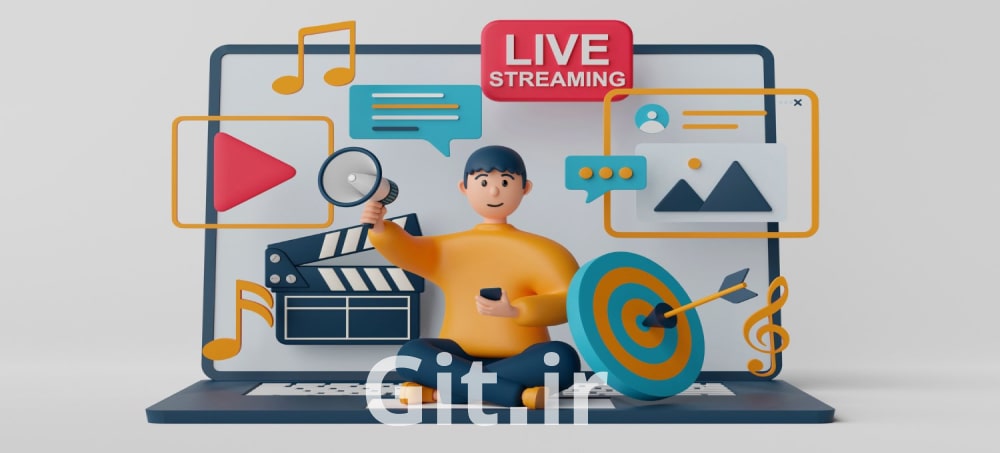What Is Digital Marketing? Essential Types and Skills
The rise of the internet has changed the way we market products and services. Discover how you can use digital marketing to kickstart your career.

Digital marketing, often referred to as online marketing, involves promoting products and services through the internet and various digital technologies. Unlike traditional marketing methods such as print ads, radio spots, or TV commercials, digital marketing utilizes computers, mobile devices, social media platforms, search engines, and other digital channels. This approach allows businesses to connect with consumers where they spend most of their time online.
In this article, you will learn everything you need to know about digital marketing, including its various strategies and how to begin your career in this exciting field. If you are eager to develop your skills, consider enrolling in the Google Digital Marketing & E-Commerce Professional Certificate program.
What Is Digital Marketing?
Digital marketing is a strategy that uses the internet and digital technology to engage with customers. This type of marketing can include many formats, such as videos, in-depth articles, social media content, display ads, paid media, and email newsletters. People encounter digital marketing across various devices, from computers and laptops to mobile devices and apps.
With over 60 percent of the world’s population online and new users joining daily, businesses are shifting their budgets toward digital marketing, while spending on traditional media declines.
Digital marketing goes beyond sponsored posts or ads. It encompasses a variety of strategies designed to connect with customers at every stage of their buying journey.
Data is crucial in digital marketing. Through marketing analytics, marketers can gather insights by tracking customer behavior in real time and targeting specific audiences with customized content across digital platforms. For instance, Starbucks has utilized data from its rewards app to identify seasonal preferences, enabling them to create targeted promotions.
7 Key Types of Digital Marketing (with Examples)
Digital marketers reach potential customers through various channels. Here are seven popular and effective digital marketing types used by both small businesses and large corporations today:
1. Search Engine Optimization (SEO) and Search Engine Marketing (SEM)
SEO aims to improve a website’s visibility in search engine results on platforms like Google and Bing. When you search for a topic, you see countless results, but most users stick to the first few options on the results page. SEO techniques help businesses rank higher, increasing their chances of being seen.
In a crowded digital landscape, SEO marketing helps businesses make their websites more visible on search engines like Google so potential customers can easily find their products or services. SEO typically focuses on organic search, meaning content is crafted to naturally rank for common search terms related to a product or service. Search Engine Marketing (SEM) combines both organic strategies and paid ads, such as purchasing ad placements on Google.
Here are some key strategies for effective SEO:
Creating high-quality content that aligns with what users are searching for
Incorporating relevant keywords to help search engines recognize the content's topic
Using long-tail keywords—specific phrases users search for—to better connect with the target audience
Ensuring fast load times and mobile compatibility to improve user experience and search rankings
▶️ View Course: SEO Training Masterclass 2024: Beginner To Advanced SEO
Data-Driven SEO Marketing
Data plays a crucial role in SEO marketing. As an SEO marketer, you’ll track metrics like bounce rate and click-through rate to evaluate the performance of blogs, product pages, and social media posts. This analysis helps identify what’s working and where improvements are needed. To manage this data, SEO marketers use tools like SEMRush and Google Analytics, along with business intelligence platforms like Tableau and Looker, which allow for deeper analysis and data insights from your organization.
If you want your website to rank higher in search results and attract real traffic, this course is for you. Learn effective SEO strategies to eliminate the need for costly consultations and grow your business—join the course now!
2. Content Marketing
Content marketing engages target audiences by providing original, valuable content like blogs, articles, and newsletters. This approach helps raise brand awareness by offering information and insights tailored to specific interests.
Content marketing can be shared across various digital channels, including:
Informative articles and blog posts
Original videos
Podcasts
Newsletters on platforms like Substack, Medium, or LinkedIn
▶️ View Course: Content Marketing: Business Growth w/Content Marketing + A
3. Email Marketing
Email marketing involves sending timely messages to subscribers to inform them about sales, discounts, and new products. When used effectively, email marketing can deliver impressive results, with an average return on investment (ROI) of 4,200 percent for every dollar spent.
Examples of email marketing strategies include:
Seasonal emails to build brand awareness during holidays
Promotional blast emails to announce upcoming sales events
Targeted emails with personalized offers tailored to specific segments of the email list
▶️ View Course: Professional Email Writing: Business Communication Skills
4. Pay-Per-Click (PPC) Advertising
Pay-per-click (PPC) advertising is a digital marketing model where advertisers pay a fee each time their ad is clicked. The publisher is usually a website owner, search engine, or social media platform like Facebook or Instagram.
Common examples of PPC advertising include:
Banner ads that are placed alongside or at the top of web content
Social media ads that appear in the feeds of targeted audiences
Search engine ads that display when specific keywords are searched on platforms like Google
5. Social Media Marketing
Social media marketing is a type of digital marketing that utilizes social networks like Twitter, Instagram, YouTube, Facebook, and TikTok to connect with customers. By leveraging the extensive reach of these platforms, marketers can use data-driven strategies to target specific consumer groups.
Social media provides an excellent opportunity to engage a broad yet focused audience, whether through computers, mobile devices, or apps.
Examples of social media marketing include:
Videos shared as part of larger campaigns, such as the 80s-themed music video created by Planters for the holidays
Instagram posts that showcase a brand’s identity, like Patagonia’s nature-inspired content on their Instagram account
6. Influencer Marketing
Influencer marketing involves brands collaborating with well-known social media influencers to promote their products and services. Influencers leverage their expertise and content creation skills to engage their followers, delivering authentic and relevant content that can drive traffic to the brands they represent and inspire purchases.
Examples of influencer marketing include:
A fitness apparel brand partnering with fitness experts and coaches on social media to promote a new line of footwear
A cookware brand collaborating with food bloggers, bakers, and chefs on social media to showcase a new kitchen appliance
7. Affiliate Marketing
Affiliate marketing is a strategy where businesses reward third-party affiliates, often influencers or content creators, for promoting their products and services. Typically, these affiliates have used and appreciated the product or service, creating content on platforms like social media, blogs, and email to share their experiences and encourage their audience to make a purchase. In return, affiliates receive compensation, which can include a percentage of sales, free products, or other incentives.
Examples of affiliate marketing include:
The Amazon Associates program, which rewards affiliates for promoting products available on Amazon
Health and wellness brands that offer compensation to affiliates for promoting items such as vitamins, supplements, and health foods

How to Become a Digital Marketer
To succeed as a digital marketer, you should be knowledgeable about marketing, business, communications, and digital technologies. Being creative, strategic, and analytical is also essential. Here are some steps to help you get started in digital marketing:
1. Gain Digital Marketing Skills
While many employers prefer candidates with a bachelor’s degree in business or communications, it's not always necessary if you possess the right skills. You can develop your digital marketing skills through courses or certifications in various areas. Focus on these key skills:
Communication: Effectively convey ideas and information.
Collaboration: Work with designers, strategists, and product developers.
Creative Thinking: Generate innovative ideas for campaigns.
Data Analysis: Understand marketing analytics to evaluate performance.
Social Media Marketing: Utilize social platforms to engage audiences.
Content Creation: Develop engaging and relevant content.
Search Engine Marketing (SEM) and Search Engine Optimization (SEO): Enhance visibility on search engines.
Customer Relationship Management (CRM) Tools: Manage interactions with customers.
Mobile Marketing: Optimize strategies for mobile users.
Video Editing: Create and edit video content.
Generative AI: Leverage AI tools for content generation and marketing strategies.
By focusing on these skills, you'll be well-equipped to pursue a career in digital marketing.
2. Complete Digital Marketing Projects
Taking on digital marketing projects is an excellent way to apply your skills and knowledge, explore your capabilities, and gain valuable real-world experience. Consider undertaking projects such as:
Building an online store using an e-commerce platform and enhancing its SEO.
Creating a social media influencer campaign to promote a product or service.
Assisting a small business in improving their paid advertising strategy.
As you complete these projects, make sure to compile a portfolio that highlights your best work. Additionally, keep your online presence updated, including your LinkedIn profile, personal website, and social media accounts. This will help you showcase your skills to potential employers and clients.
3. Look for Entry-Level Digital Marketing Jobs
Securing an entry-level digital marketing position is a crucial step toward building your career in this field. To find suitable opportunities, explore job boards like Glassdoor, Indeed, and other career websites for roles such as:
Social Media Coordinator
Digital Marketing Specialist
Entry-Level Content Strategist
Marketing Data Associate
Marketing Assistant
Make sure to enhance your resume to highlight relevant skills and experiences. Additionally, practice your interview skills to prepare for potential interviews. This preparation will increase your chances of landing a job and advancing in the digital marketing industry.
🔷 View the list of Digital Marketing courses
Please Log in to leave a comment.